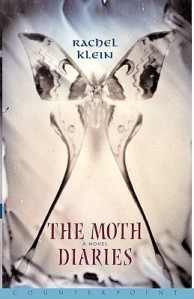A beautiful and distinguished family.
A private island.
A brilliant, damaged girl; a passionate, political boy.
A group of four friends—the Liars—whose friendship turns destructive.
A revolution. An accident. A secret.
Lies upon lies.
True love.
The truth.
We Were Liars is a modern, sophisticated suspense novel from National Book Award finalist and Printz Award honoree E. Lockhart.
Read it.
And if anyone asks you how it ends, just LIE.
Review:
The thing about reading a whole book that purports, in its very blurb, to be a massive lie is that when you finish the book you feel unsatisfied because nearly everything you just read was a massive lie.
I don’t have much to say about We Were Liars partly because the book summary instructs me not to reveal the super amazing surprising awesome plot twist (though I will reveal: the twist is not that super nor that amazing nor that surprising nor that awesome) and partly because two thirds of the book feels irrelevant after reading said twist. Apologies for vagueness, but basically you spend most of the book thinking one thing is true only to realize it isn’t true, which left me feeling quite hollow. In essence, pages upon pages of character growth and interaction are false and therefore rather useless.
For a story that seemingly aims to be gritty—with its wtf ending, its family dysfunction, its depressed and traumatized narrator—it didn’t read realistically enough. Nothing about We Were Liarsfeels like something real people with real, beating, breakable hearts would experience. The book follows the Sinclairs, a blueblood family with a private island near Martha’s Vineyard where most of the story takes place. But the Sinclairs rang false for me. They didn’t behave like real East coast elite do, instead they were coarse renderings of how we imagine such people behave.
It could be Lockhart’s inventive prose style that destroys any sense of reality. She writes in short, choppy, almost verse-like sentences with nonsensical descriptions. One character, for instance, is “ambition and strong coffee,” which…I don’t know what that means? I don’t even know what it’s trying and failing to mean. Lockhart also employs faux fairytales to depict the downfall of the Sinclair family, which are interesting but overly obvious. They could have been wonderful metaphorical asides open to interpretation, but instead they were twee retellings of the 10 previous chapters’ intrigue where the narrator’s mother, aunts, and grandfather are played by a king and princesses.
Yes, I enjoyed We Were Liars. Its blurb-writer is a mad genius because I would read anything that warns, “if anyone asks you how it ends, just LIE.” But I found it heavy on lies and low on truths—real meaningful life truths, you know, the stuff that really matters.

